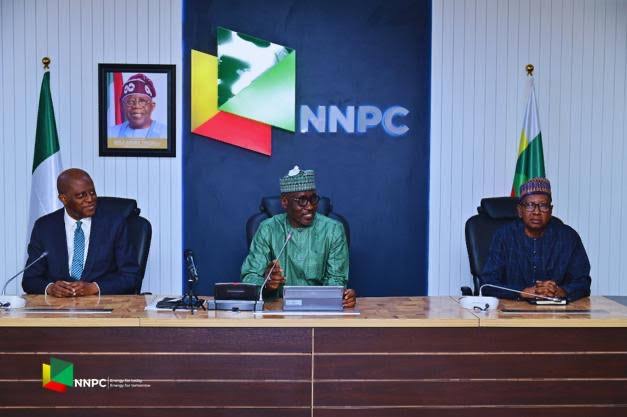The Nigerian National Petroleum Company (NNPC) has dismissed rumors that its Group Chief Executive Officer, Mele Kyari, will exit the company in January 2025.
According to NNPC spokesperson Olufemi Soneye, the claims are “rumors and false.”
Soneye emphasized that Kyari has his time and tenure in the NNPC, but ultimately, it is President Bola Ahmed Tinubu who has the final say on the matter. As the Minister of Petroleum, Tinubu’s decision on Kyari’s tenure will prevail.
The rumors of Kyari’s exit may have been fueled by his upcoming 60th birthday on January 8, 2025, which some believe may mark his retirement from service.
However, Soneye maintained that the company’s appointments are based on expertise, skills, and ability to deliver, not on ethnicity, religion, or other sentiments.
In fact, Soneye highlighted that NNPC is a global energy company that values diversity and inclusivity. The company has foreigners, including Dutch, American, and British managing directors, working for them, which would not be possible if appointments were based on sentiments.
Other players in the oil and gas sector have pointed out that Kyari’s tenure is expected to terminate in 2027, in line with Section 59 (2) of the Petroleum Industry Act 2021. However, this has not been confirmed by the NNPC.
It’s worth noting that Kyari was reappointed by President Tinubu in November 2023 to continue leading the country’s oil behemoth. This move was seen as a vote of confidence in Kyari’s leadership.
Recently, there have been controversies surrounding President Tinubu’s appointments into NNPC, with some accusing him of ethnic bias. However, the presidency has denied these allegations, stating that the appointments are based on merit.
In related news, NNPC has made several new appointments, including Adedapo Segun as its new Chief Financial Officer (CFO) and Mr. Isiyaku Abdullahi as the Executive Vice President (EVP), Downstream.
The NNPC has transitioned from a public corporation to a limited liability company since July 2022. As the company continues to evolve, it remains committed to transparency and merit-based appointments.








